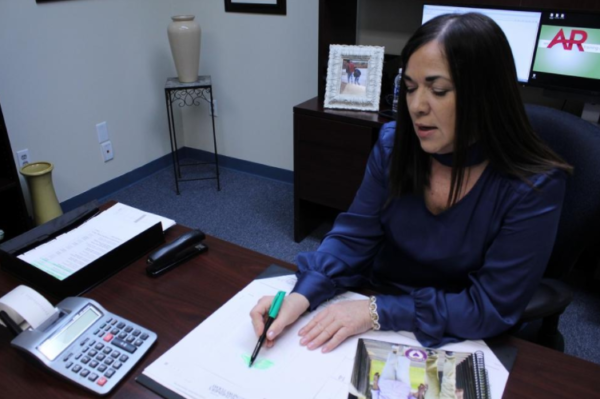March 27, 2018
Alzheimer’s expected to grow in Fort Smith region, throughout Arkansas
Southwest Times Record, FORT SMITH, AR – The number of people diagnosed with Alzheimer’s dementia is expected to grow on a state and regional level in the coming years.
Arkansas Alzheimer’s Association Event Director Carly Dethlefs said roughly 56,000 people in the state who currently live with the disease and that number is expected to hit 67,000 by 2025. Officials like Education Director Patricia Clark at the West Central Center on Aging said she has seen an increase in diagnosed residents in recent years.
“I don’t see that it’s going to go away,” Clark said.
Alzheimer’s, a fatal form of dementia that kills brain cells to the point where the patient is eventually unable to remember many details or perform everyday tasks, has become more prevalent in the United States with each passing year. The number of diagnosed people in the U.S. has increased 123 percent from 2000 to 2015, according to Alzheimer’s Association numbers.
“Basically, the brain cells die,” Clark said. “They just shrink in size, so you don’t have as much brain matter.”
An estimated 5.7 million Americans are currently living with Alzheimer’s, according to association numbers. Association officials expect that number to reach 7.1 million in 2025 and then 13.8 million by 2050.
The number of people diagnosed with the disease has an impact on those who care for the diagnosed. In Arkansas alone, 177,000 caregivers of people with Alzheimer’s account for 201 million hours of unpaid care. In the United States, an estimated 16 million Americans gave an estimated 18.4 billion hours of unpaid care, according to association numbers.
Financially, the total cost of care for Alzheimer’s in the United States is expected to increase to more than $1.1 trillion, according to the association.
Clark said the toll that Alzheimer’s disease has taken on the United States can be seen in Sebastian County. She said that Fountain of Youth, an adult day-care center, sees between 30 and 45 people with Alzheimer’s every day.
Though she spoke highly of the stem cell research, she said other steps need to be taken until the research is put into practice.
“Studies are promising, but as far as curing it? No,” she said.
Clark also said that caregivers of Alzheimer’s patients need respite. She mentioned that the Center on Aging has an Alzheimer’s support group comprised of caretakers who meet at 1 p.m. on every third Tuesday of each month at Calvary Baptist Church.
Until medical sciences advance to the point of addressing Alzheimer’s, Dethlefs recommends a holistic approach to brain health. She said that keeping a healthy brain comes down to “being physically active, having a well-balanced diet and being socially engaged, not smoking and all different things.”
“The biggest thing for research is all-around brain health,” Dethlefs said.
